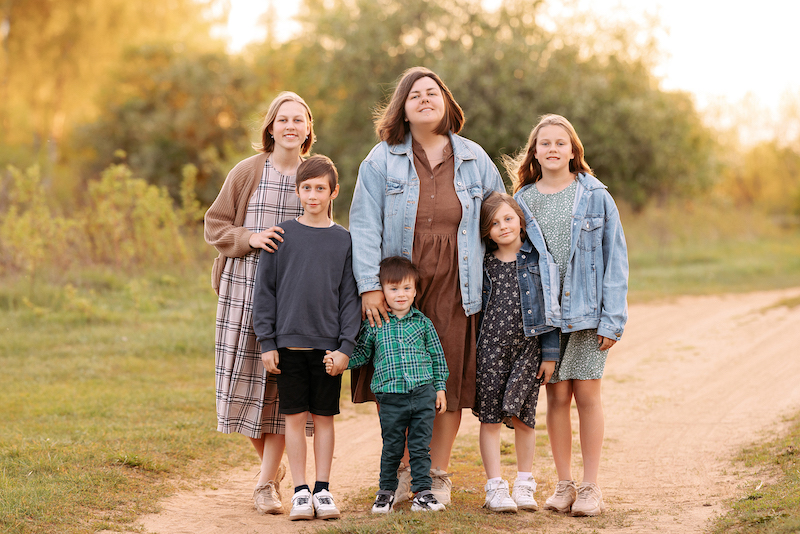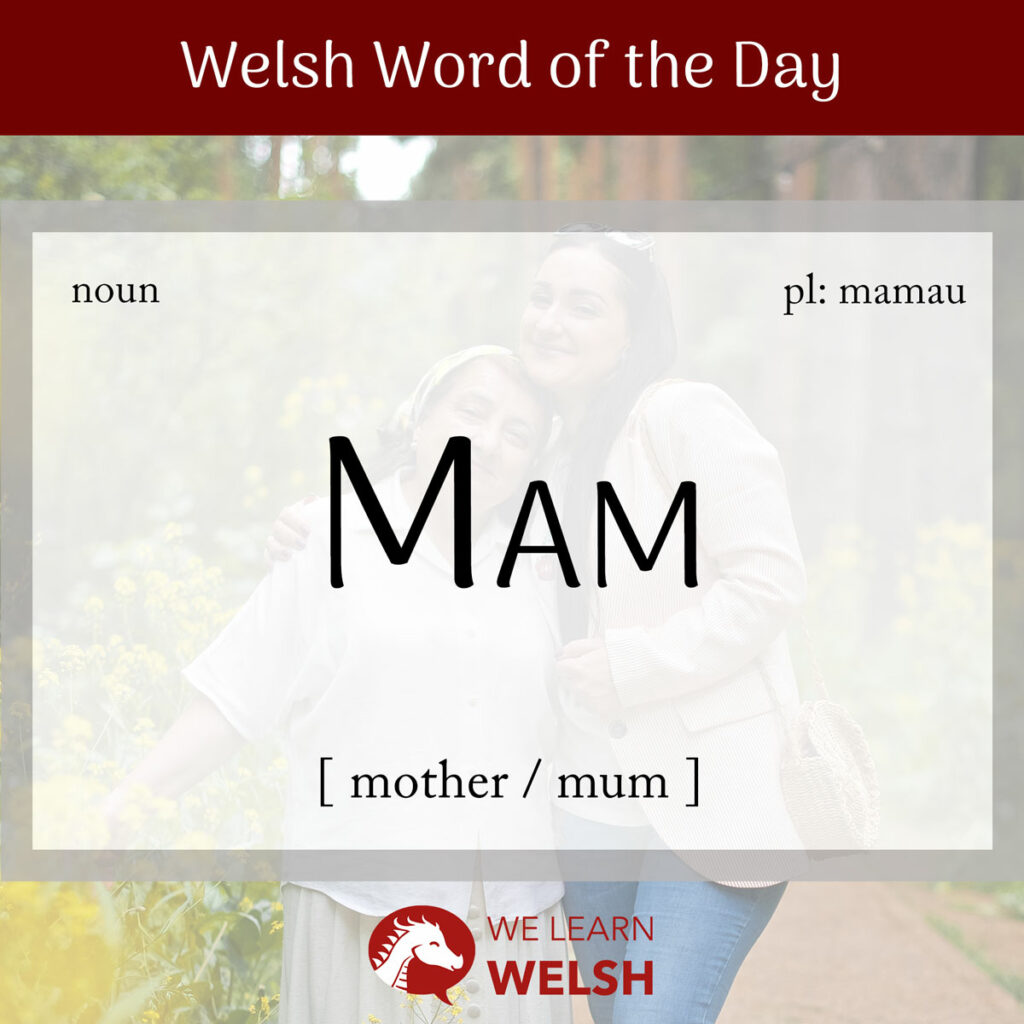Today’s word of the day is mam which means mum or mother. This is one of the first words anyone will learn in Welsh, whether as a native speaker or as a learner. Mam is also a common first word for Welsh children to say (although, personally, mine was het, meaning hat… I was an odd child).
Mamau (mothers) play an incredibly important role in society and in many people’s lives, so this Sul y Mamau (Mothering Sunday / Mother’s Day), let’s take a moment to learn about this common Welsh word.
mam
mum / mother
Mam is a feminine noun, and is susceptible to only the soft mutation:
Soft mutation
fam
Nasal mutation
N/A
Aspirate mutation
N/A
There are many types of mamau – you might have a mam faeth (foster mother), a mam mabwysiol (adoptive mother), a mam yng nghyfraith (mother-in-law) or a llysfam (stepmother), also known as a mam wen (lit. white mother) in the Northern dialect of Welsh. If your parents decided to bedyddio (christen) you, you might have a mam fedydd / mam dduw (godmother). Finally, some might choose to become a mam fenthyg (surrogate mother, lit. borrowed mother) and have a child on behalf of someone else.

Mam is often used in a metaphorical way in the Welsh language. For instance, take the word mamynys, which means mainland / main island but literally translates to mother island. Other examples include:
- mamiaith (mother tongue / native language)
- mam ddaear (mother Earth)
- mam y drwg (the root of the evil, lit. the mother of the evil)
- mamgell (mother cell)
- Yr Hen Fam (the Church of England, lit. the Old Mother)
Mam is even used in the exclamation O mam bach! / O mam fach! which is the Welsh equivalent of Oh my goodness/god! This exclamation is interesting because usually adjectives take the soft mutation after singular feminine nouns like mam. We would therefore expect people to always say O mam fach! In fact, the mutation is present in some regions of Wales and not in others.
There are a few possibilities as to why that is. Firstly, bach without a mutation is often used to mean dear / my dear, as in Cadi bach (Cadi dear / Cadi, my dear), so mam bach might here mean dear mother rather than little mother. Secondly, it’s possible that mam bach is a genitive construction translated as a mother of a little one, which wouldn’t trigger the soft mutation. This isn’t the only example of inconsistency in Welsh grammar. For instance, take the villages Eglwysbach (in Conwy) and Eglwys Fach (in Ceredigion)!
Dw i wedi prynu anrheg i Mam.
I’ve bought a present for Mum.
The Welsh language, like English, has derogatory terms for people (especially men) who are seen as too close to, or too influenced by, their mothers. For instance, you might say that a man is bach ei fam (a mummy’s boy) or that he is wrth linyn ffedog ei fam (unduly controlled by his mother), which literally translates to at the apron strings of his mother. On the other side of things, an overprotective mother might be referred to as mam cŵn bach (lit. mother of puppies), which is rather similar to calling someone a mother hen in English. There aren’t any special Welsh terms for overbearing fathers as far as I know.
In South Walian, the word for grandma is derived from mam: mam-gu. However, the further North you go, the more likely you are to hear a different word for grandma: nain. Growing up, I was lucky enough to have not only two mam-guod (grandmas) but also a hen fam-gu (great-grandma), who survived Yr Ail Ryfel Byd (The Second World War).
Mae Mam eisiau cusan a chwtsh.
Mum wants a kiss and a cuddle.
Y fam, as well as meaning the mother, is a colloquial term for the womb; the more technical anatomical term is y groth (the uterus). In the nineteenth and twentieth centuries, if you were an unlucky or troublesome woman, you might have been diagnosed with clefyd y fam (hysteria lit. disease of the womb)!
I hope you learned something new from this article, and to all the mamau out there: Sul y Mamau Hapus! (Happy Mother’s Day!)


